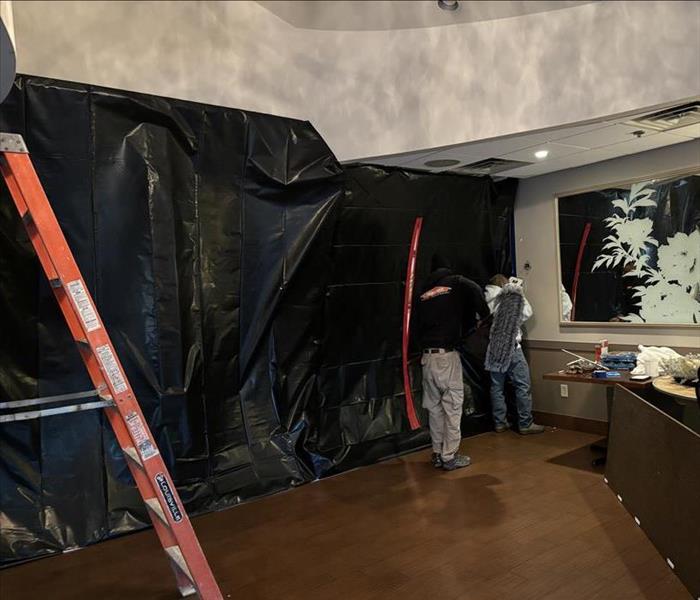Tips to Protect Your Home's Electrical Systems After Fire Damage
4/14/2024 (Permalink)
 Discover the crucial steps to protect your home's electrical systems and appliances from fire damage.
Discover the crucial steps to protect your home's electrical systems and appliances from fire damage.
Fires pose a significant risk not only to our homes but to the intricate electrical systems and appliances we rely on daily. While the visible damage caused by fire is often immediate and distressing, the hidden dangers it presents to electrical components can be equally devastating, potentially leading to further hazards long after the flames are extinguished.
Understanding Fire's Impact on Electrical Systems
Electrical systems are the lifeline of modern homes, powering everything from basic lighting to essential HVAC systems. Recognizing these risks is the first step in implementing measures to protect your home's electrical infrastructure. Electrical systems face multiple risks:
Heat Damage: Extreme temperatures can melt wiring insulation, exposing wires and increasing the risk of short circuits.
Smoke Corrosion: Smoke contains corrosive substances that can damage metal components of electrical systems, leading to failures.
Water Damage: The water used to extinguish fires can cause short circuits and corrosion in electrical devices and wiring.
Immediate Steps After a Fire
After experiencing a fire, it's critical to prioritize safety by refraining from using any electrical devices or appliances until they have been professionally inspected. The next step involves hiring a certified electrician to thoroughly assess the damage to your home's electrical system, ensuring that any risks are identified and addressed. Additionally, for insurance purposes, it's important to document all damages with photos and provide detailed descriptions. This approach ensures the safety of your home's electrical system and facilitates the process of making an insurance claim.
How often should electrical systems be inspected for fire safety?
Electrical systems in a home should be inspected for fire safety at least once every three to five years by a licensed electrician. However, if your home is older, has undergone significant renovations, or if you've added numerous appliances, an inspection should be conducted more frequently. Regular inspections help identify potential hazards, such as outdated wiring, overloaded circuits, or faulty electrical panels, before they lead to a fire.
What are the signs that electrical wiring has been damaged by fire?
Signs that electrical wiring has been damaged by fire include:
- Discoloration or charring of outlets and switches.
- Brittle, cracked, or melted insulation on wires.
- A burning smell coming from outlets or switches.
- Flickering lights or intermittent power indicates damaged wiring.
- Tripped circuit breakers or blown fuses that occur frequently.
How can I tell if an appliance has been damaged by fire or smoke?
To determine if an appliance has been damaged by fire or smoke, look for:
- Visible soot or ash on the exterior or interior components.
- A strong, persistent burnt smell even after cleaning.
- Malfunctioning or erratic behavior when the appliance is used.
- Physical damage such as melted parts, charred wires, or discolored surfaces.
Prioritizing Electrical Fire Safety
Protecting your home from fire damage extends beyond having a fire extinguisher on hand. It requires a comprehensive approach to ensure the safety of your home's electrical systems and appliances. By following the tips shared in this blog, you can enhance your home's fire safety measures and protect against hidden dangers.

 24/7 Emergency Service
24/7 Emergency Service